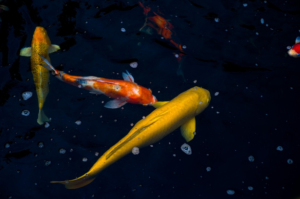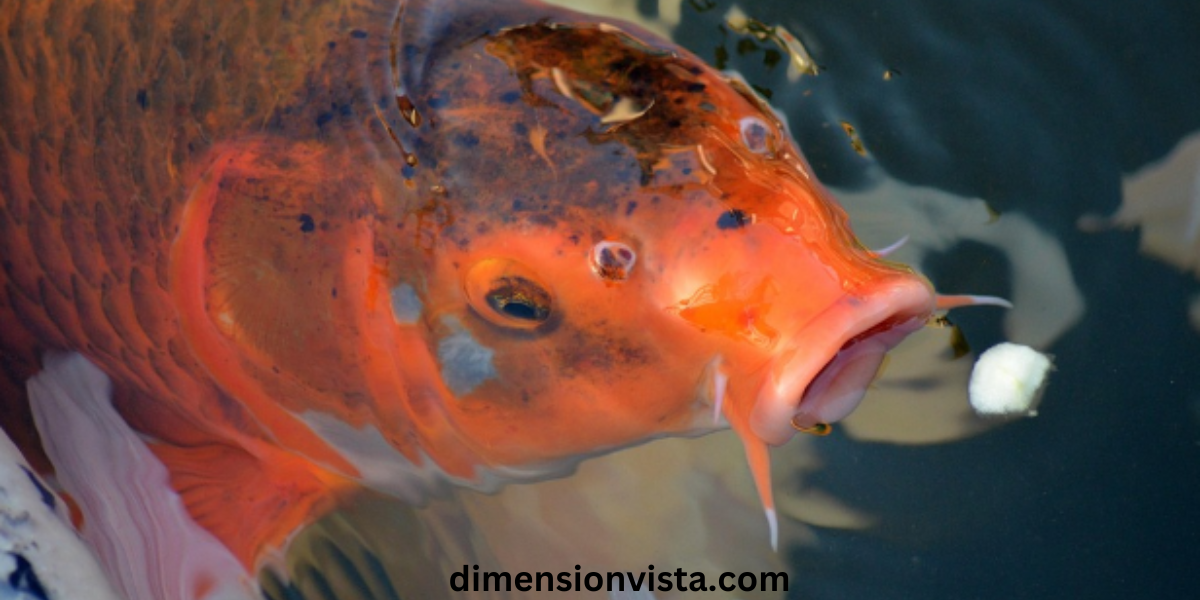Koi carp are more than just ornamental fish; they are symbols of tranquility, grace, and longevity. Providing them with a peaceful and well-balanced habitat is crucial for their health and well-being. Whether you’re a seasoned koi keeper or just starting, designing the perfect environment requires careful planning and attention to detail.
In this guide, we’ll explore the essential tips for creating a serene environment for your koi carp, covering everything from pond design to water quality and landscaping. By the end of this article, you’ll have the knowledge to foster a stress-free, aesthetically pleasing, and thriving habitat for your koi.
Designing the Ideal Koi Pond

A well-designed koi pond is the foundation of a serene environment. Here are the key considerations:
1. Optimal Pond Size and Depth
- Size Matters: A koi pond should be at least 1,000 gallons in volume, with a depth of 3 to 5 feet to accommodate their growth and prevent overheating in summer or freezing in winter.
- Shape and Design: Avoid sharp corners; opt for a gently sloping or oval-shaped pond to allow smooth water circulation and easy movement for koi.
2. Choosing the Right Location
- Sunlight Exposure: Koi need some sunlight, but excessive direct sunlight can lead to overheating and excessive algae growth. Aim for partial shade with a mix of sun and shade.
- Protection from Predators: Install pond netting, floating plants, or protective barriers to deter birds, raccoons, and other predators.
3. Filtration and Aeration
Maintaining clean water is crucial for koi health. Consider these components:
- Biological Filtration: A high-quality biofilter helps break down fish waste and toxins.
- Mechanical Filtration: Removes debris and prevents clogging.
- Aeration System: Waterfalls, air stones, or diffusers ensure proper oxygen levels.
- UV Sterilizers: Helps control algae and harmful bacteria.
Maintaining Water Quality for a Serene Environment
1. Monitoring Water Parameters
- pH Level: Ideal range is 7.0 to 8.5.
- Ammonia and Nitrite Levels: Should be at 0 ppm.
- Oxygen Levels: Maintain high oxygen content with aerators and waterfalls.
2. Regular Water Changes
Perform 10-20% water changes weekly to maintain water clarity and remove harmful substances.
3. Managing Algae Growth
- Use barley straw, UV sterilizers, or algae-eating fish.
- Avoid overfeeding, which contributes to excess nutrients fueling algae.
Landscaping and Aesthetic Enhancements
1. Selecting Aquatic Plants
- Floating Plants: Water lilies and lotus provide shade and reduce algae.
- Marginal Plants: Cattails and iris improve filtration and create a natural look.
- Submerged Plants: Help oxygenate the water and provide hiding spots.
2. Incorporating Natural Elements
- Rocks and Driftwood: Enhance aesthetics and offer shelter.
- Waterfalls and Fountains: Improve oxygenation and add a calming sound.
- Lighting: Use LED underwater lights for a serene nighttime ambiance.
Ensuring Koi Health and Happiness
1. Providing Proper Nutrition
Feed high-quality koi food with proteins, vitamins, and minerals. Adjust feeding frequency based on seasonality:
- Summer: 2-3 times daily.
- Winter: Reduce feeding as metabolism slows.
2. Preventing Stress and Disease
- Quarantine new koi before introducing them.
- Perform regular health checks for signs of disease.
- Avoid overcrowding one koi per 250 gallons is ideal.
Conclusion
Creating a serene environment for your koi carp requires careful planning, from pond design and water quality management to landscaping and fish care. By following these tips, you can build a tranquil oasis where your koi thrive and bring peace and beauty to your outdoor space.
With the right setup, your koi pond will not only be a haven for your fish but also a peaceful retreat for you to enjoy for years to come. Start making improvements today and watch your koi flourish!

